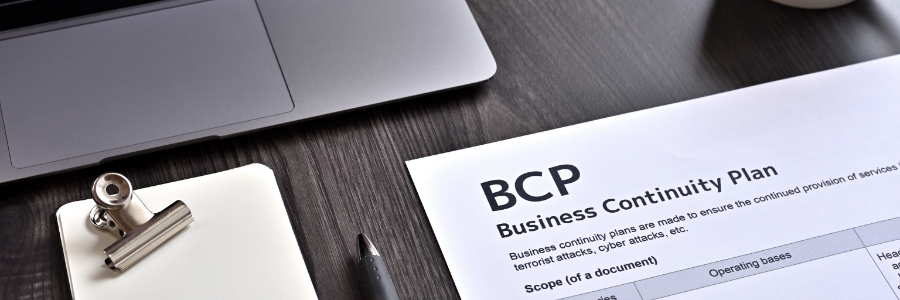Having an effective business continuity plan (BCP) can be the difference between surviving a crisis and facing irreversible consequences. But many business owners inadvertently commit errors when developing their BCP, which can jeopardize their business.
Costly business continuity plan mistakes to steer clear of
Staying afloat: The importance of a business continuity plan for SMBs
Be prepared for disasters: Business continuity planning for SMBs

Disasters can happen to anyone, and when they do, it can be difficult for small- or medium-sized businesses (SMB) to get back on their feet. Your business could be at risk if you’re not prepared for a natural disaster or an unexpected emergency. Here are a few tips to help keep your business afloat during tough times.
Why is it important to have a business continuity plan?

Many small- to medium-sized business (SMB) owners fail to prepare for major crises like flood and ransomware attacks. Disaster events can cause downtime, which can result in lost revenue and lower profits. In addition, SMBs that fail to recover quickly from disruption face the risk of losing their customers to their competitors.
Why your SMB needs a business continuity plan (BCP)

Multiple things can disrupt the operations of small- to medium-sized businesses (SMBs), such as natural disasters or cyberattacks. This can lead to lost revenue, or in some extreme cases, business closure. But having a concrete business continuity plan (BCP) in place will help your business recover quickly after a disaster.
What goes into a business continuity plan?

Power outages, disasters, and other disruptions are inevitable. Thousands of businesses around the globe are affected by them every year, with lost profits ranging into the millions, if not billions. So how can your business protect itself and stay open when the unexpected strikes? Here is a standard business continuity plan (BCP) your company can rely on.
BCP strategies to keep your business open

It’s a fact of life. Events out of your control can disrupt your business operations. While you can’t necessarily control the unexpected, you can take some precautions to prevent most business disruptions. Here are some key business continuity strategies that organizations across the globe rely on to keep their doors open.
Communication before the storm is key

When your employees see snow on the ground, the thought of a day off immediately pops into their heads. Of course your customers are still reliant on you to provide the goods and services they have come to expect from your business. Before a storm hits, you should be communicating with both staff and clients to inform them of the situation.


